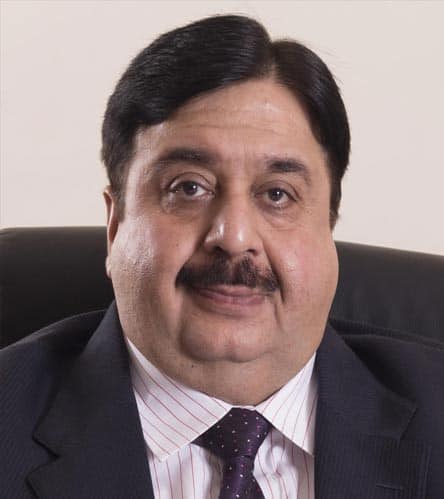Last Updated on January 14, 2024 by The Health Master
The Pharmacy Council of India (PCI) is in the process of revamping the present Pharm D curriculum and aiming to release the draft curriculum for comments and suggestions by the end of October 2020.

Dr B Suresh, President, Pharmacy Council of India, commented, “In India, the Pharma D course was started in 2008 and presently there are more than 2000 institutes offering the course. The majority of these institutes are located in the Southern states and less than 10 per cent of them are from Western India.
Knowing the fact that besides India, our Pharm D course is a well-recognised programme in the US, Middle East, Canada, Australia and African countries as well, now the focus is on further strengthening the existing Pharma D course.”
Revealing proposed reforms in the Pharm D Course, he shared ideas/plans to;
a) Bring in the semester pattern
b) Introduce a choice based credit system
c) Start practical training, clinical posting in speciality hospitals for three months, whereas, the present curriculum gives only general subject training
d) Add newer topics in the revamped curriculum on therapies for example; use of vaccines, use of biological drugs etc.
e) Incorporate entrepreneurship training programmes
Also read: Govt approves Bulk drug park at Odisha
He added, “Besides this, there will be other cosmetic changes as well in the present curriculum which will be carried out keeping in mind of strengthening the present programme and benefitting Pharma D professionals.”
Commenting on the need to restructure Pharm D curriculum, Dr Suresh Saravdekar, Consultant- BHU and VC of Indian Pharmaceutical Association – Hospital Division, said, “Although there are several institutes in India which are offering the Pharm D courses, very few of them are associated with the hospitals for practical knowledge transformation and address Indian healthcare requirements. The present Pharm D course is a replica of the developed countries’ syllabus, there is a need to cater to requirements in the Indian context.”
He elaborated, “Besides revamping the current curriculum of Pharma D course, there is also a need to put a considerable amount of focus in creating suitable employment, which can be done in two ways namely, the public sector and the private sector.”
Speaking on the public sector, he stressed that presently there are four segments mainly community pharmacist, hospital pharmacist, drug regulations-FDA and education regulations and all of them are working in silos. “There is a need to bring all of them under one umbrella. And in each state, there should be one Directorate of Pharmaceutical Services, which should be assisted by four joint directorate- pharma services representing the above-mentioned sections.
For the private sector, he suggested, “In the case of the private sector which is following a self-regulated mechanism called NABL, I recommend that under the Clinical Establishment Act, the standard of pharmacy services in a hospital should be developed and accordingly posts can be created, to create employment for Pharm D professionals in the country.”
To read more articles on PCI, click here
Commenting on the eligibility criteria, Suresh said, “Whatever, the eligibility criteria are set for the admission to a university degree will be applicable here as well. We are not making any changes to it. We are already in the process of designing /revamping the Pharma D curriculum and by the end of October will be able to make it available in the public domain for the suggestions and comments. However, we are aiming to get it approved by the Ministry of Health and Family Welfare (MoHFW) before the end of December this year.”
Ashokswamy Heroor, President, Karnataka State Registered Pharmacists Association (KSRPA) stated, “We have urged to the central government, along with PCI, and all others concerned authorities to restructure the Diploma course in Pharmacy as a 13+2 or 12+3 year study course. This will come to rescue of the pharmacists by rectifying the above-narrated anomalies with 15 years structure, the pharmacy education will be more effective. The requirement of 500 hours compulsory practical training may also be included as a part of the 15 years schooling. The requirement of 500 hours may be increased to 1000 hours, covering dispensing and cosmetics manufacturing activities etc.,”
He added, “Alternatively, we have also suggested that the D Pharm course may be restructured as of a 13+2 or 12+3 year study pattern. The compulsory industry training may be embedded in the final year’s study.
New subjects like blood banking techniques, drug interaction reporting, clinical trial techniques, de-addiction procedures, computer basics, regulatory affairs and defending procedures in courts consumer protection laws and the provisions of the Right to Information Act, Weights and Measures Act, Packaged Commodities Act, the Drugs Prices Control Order, E.C. Act, etc., may also be taught in the final year.
This will not only upgrade the knowledge and provide greater job opportunities, but also help to reduce drug-related offences like selling spurious drugs etc. By adopting the 15 years system the pharmacy colleges will also benefit in many ways. There is no doubt that these reoriented systems will result in improving the quality of pharmacy education and uplift the profession of pharmacy. It will be appreciated by one and all. Hence, in the interest of all registered pharmacists, we urge all the concerned authorities to restructure the diploma study in Pharmacy as 13+2 years or as a 12+3 years course.”








